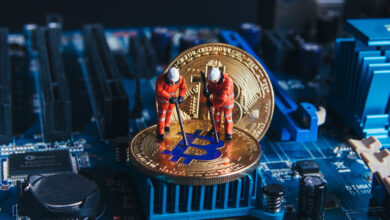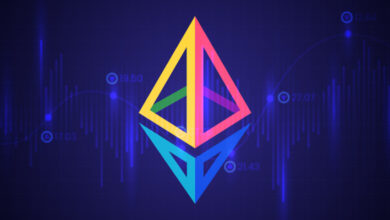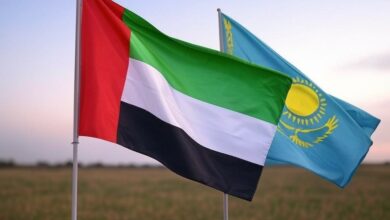UAE BounceBack project which utilizes blockchain wins MBRU competition

The winners of the #MBRUHacksCOVID19 hackathon, a pioneering competition which tasked UAE residents with developing innovative solutions that can help in the fight against the global pandemic, have been crowned. The winning team, a group of four, took the top prize for their solution, Bounceback, a platform that utilises machine learning algorithms and tokenisation to identify, verify and provide immediate subsidy relief to vulnerable communities and individuals who have suffered financially from the global health crisis.
The winning Bounceback team composed of Faisal Al Hawi, Yves Farhat, Santhosh Kumar and Veronica Murguia, beat off competition from more than 470 hackers to claim the AED50,000 first prize as well as a AED25,000 National Impact Grant awarded by Sandooq Al Watan, a social initiative created to empower the brightest minds in the UAE.
During the three-day hackathon, which attracted innovators from the fields of engineering, coding, design thinking, data analytics, medicine, public health and more, Bounceback focused on the challenge of delivering a solution to prevent social and economic disruption in vulnerable communities.
Bounceback utilises a suite of emerging technologies, including big data analytics, blockchain and Artificial Intelligence, for efficient transparent and effective match-making between a beneficiary in need and a subsidy donor or contributor to ensure that relief funds and packages reach the most vulnerable, whether individuals or businesses.
“We feel the responsibility of contributing to the world as we are all going through the COVID-19 crisis. We strongly feel the pain of vulnerable individuals and families and felt compelled to support and give back to the community. Human-centric innovation is the best way to support those in need and enables us to make a conscious use of technology to create impact and drive change,” said the Bounceback team.
“We were extremely engaged and energised during the hackathon to provide something purposeful that could potentially change lives. The organisers made it all very smooth and an exciting journey as well. We look forward to bringing our platform to life.”
The hackathon was held by the Mohammed Bin Rashid University of Medicine and Health Sciences (MBRU) in partnership with the Dubai Institute for Design and Innovation (DIDI), the American University of Sharjah, Sandooq Al Watan and guaana. Professor Homero Rivas and Dr. Thomas Boillat, co-founders of the MBRU Design Lab, were the driving forces behind the #MBRUHacksCOVID19 initiative.
“Challenging times bring out the best in people, working collectively to identify solutions to those challenges, and we certainly saw that during the three days of the hackathon. We know that Dubai is a hub for innovation, but the creative thinking, collaboration, and desire to push boundaries exceeded our expectations. With more than 470 creative minds rising to our task, this really was a sign that we are all in this together,” said Professor Rivas, who is also Associate Dean of Innovation and the Future at the College of Medicine in MBRU.
His Excellency Ahmed Fikri, Acting Director General of Sandooq Al Watan, added: “This challenge is a testimony to the spirit of solidarity and social cohesion in the UAE community as 470 innovators came together and competed for a week, united by the aim to innovate solutions for the challenges facing society in fighting COVID-19. We are proud of our partnership with MBRU in this hackathon and of its innovative outcomes. We are also delighted to award our Emirati Innovator Program’s National Impact Grant to team Bounceback to support them in further developing their app-enabled platform that matches relief and subsidy donors with individual and business beneficiaries, using AI and blockchain technologies. Through the Emirati Innovator program, Sandooq Al Watan aims to support and empower Emirati entrepreneurs and innovators in developing their local technologies and contributing towards creating a knowledge-based economy.”
In addition to 474 hackers, 71 mentors were on hand to provide advice and guidance to the contesting teams but were not allowed to help them solve potential technical questions.





